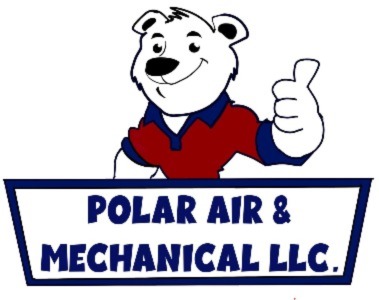
If you are interested in starting a new, successful career, consider one in heating, ventilation and air conditioning. HVAC is an excellent place to start, according to the U.S. Bureau of Labor Statistics, which predicts careers in this industry will grow by 13 percent by 2028.
People interested in HVAC quickly discover why these careers are continuing to grow. One involves homeowners using government tax credits to upgrade to more energy-efficient comfort systems. There's also the transition away from R-22 Freon®, which impacts older equipment. Finally, there’s the ever-changing real estate market exacerbated by a property shortage that’s increased the availability of new construction homes.
A career that's increasingly in demand is an HVAC technician. Find out about what they do, how to become one and about how much you can expect to make.
What Is an HVAC Technician?
A HVAC technician possesses the knowledge and skills to service heating and cooling systems. Most work with both homeowners and business owners. And, most important, you’ll learn a great deal about:
- Air conditioners
- Furnaces
- Mini-splits and heat pumps
- Thermostats and home zoning
- Indoor air quality systems including air filters and air purification systems
Some apprentices even become HVAC-R technicians, meaning they also have experience with refrigeration.
Is There a Shortage of HVAC Technicians?
Experienced HVAC technicians are increasingly sought after because of an industry shortage of labor. This shortage is because of several things, such as more retirements and competition from other industries. Many younger people also pursue college degrees rather than a licensed trade like HVAC.
Is HVAC a Hard Career?
While HVAC often requires physical exertion, it can still be quite gratifying. As a technician you’ll need to be able to:
- Work in uncomfortable settings, including tight or dusty spaces.
- Work in inclement weather since HVAC equipment is generally found outdoors.
- Work evenings, weekends and overtime throughout peak demand.
A common misconception about learning HVAC is that it’s a blue-collar career. It requires a specific skill set, specialized education and periodic recertification.
It’s an excellent first career if you prefer to:
- Minimize student debt.
- Work outdoors instead of in an office.
- Have job security because the HVAC industry can't be outsourced.
- Gain the experience you need to start your own successful business.
Is HVAC a Difficult Job?
Every job has sources of stress. HVAC technicians handle complex equipment and may be subject to cramped or uncomfortable working conditions. Sufficient experience and tools can help mitigate some of these concerns. In addition, paid training and a consistent schedule help people in the HVAC industry fend off some of the most common triggers of work-related stress.
Is HVAC Hard on Your Body?
Lifting heavy objects and performing repetitive motions are both common during HVAC work. Reaching difficult-to-access equipment can be strenuous. HVAC projects are often physical, and you may benefit from a healthy diet and exercise regimen to remain as healthy as possible.
Would a Recession Impact HVAC Jobs?
While there isn't a job that's immune to a recession, HVAC is especially reliable due to the widespread use of heating and cooling equipment. Repairs and installation are always necessary, which means professionals in HVAC can often find work across the country.
Is HVAC a Good Career for the Future?
As HVAC equipment becomes more complex, technicians and installers will become even more important. The newest models of heating and cooling systems need less energy or obtain it from renewable sources like solar and wind. Greener HVAC equipment will keep growing more popular, as will the need for experienced installers and technicians.
How to Become an HVAC Technician
To learn everything you need to become an HVAC technician, you’ll need a high school diploma or GED on top of industry training. Other, more specialty (and higher paying) HVAC careers require additional education or certifications.
Earn certifications by taking classes at a community college or trade school. The time it takes to become an HVAC technician relies on the program, which is typically six months to two years. An employer may also require NATE certification. This refers to North American Technician Excellence, this influential accreditation builds on your existing industry knowledge to maximize your capabilities.
While some aspects of the job can be learned on your own, professional development means a combination of classroom programs with on-site training. At the same time, HVAC careers don't involve complex math. While you'll need to know some basic math, the bulk of an HVAC professionals’ skill set relies on critical thinking, for identifying problems and ensure quality installation.
Career Explorer reports that HVAC technicians who are familiar with tablets, electronics and troubleshooting will be in big demand as equipment becomes more technologically advanced.
Another benefit of working in HVAC is next to no student debt.
According to Midwest Technical Institute, signing up for classes at a technical or trade school generally costs approximately $15,000. A community college is usually around $5,000 per year. With a more conventional education, the average student debt for a bachelor’s degree is $25,921.
A Day in the Life of an HVAC Technician
Your work schedule may vary on the work site as well as your specific skill set. If you primarily offer repair services, you may work early, late or be on call throughout the day. If you work in construction/home building or management, you may have more of a set schedule during normal business hours.
As a technician, your 'office' is actually all the properties you visit to complete repair, maintenance or installation work. Certain jobs may require more time than others, so the number of calls you can go on may vary.
As we mentioned before, you should expect the occasional job in inclement weather as well as in difficult-to-reach places. If you work in a customer-facing role, strong customer service skills are always useful.
Do HVAC Careers Offer Good Salaries?? Average Salary for HVAC Technicians and Other HVAC Careers
With the constant growth in HVAC careers, your salary will reflect it. The national average salary for an HVAC technician is $49,242, according to ZipRecruiter. Professionals with specialized skills could make between $56,600 and $68,000. Having said that, your salary may be dependent on the area's average wages and its cost of living. HVAC techs with enough experience to work in management in a high-paying state could make upward of six figures.
In addition to owning your own business, there are several other career opportunities. These include:
- HVAC manager, $72,515 average salary
- HVAC service manager, $71,176 average salary
Types of HVAC with the Highest Salaries
There is a lot of room for specialization in the HVAC industry, and continuing education and certification opportunities open doors for niche positions with great salaries. For example, master engineers with experience designing custom equipment or leading projects could receive six-figure salaries. Larger salaries are also common when you work with advanced equipment like commercial HVAC systems, geothermal heat pumps or radiant in-floor heating.
What States Need HVAC Workers the Most
HVAC technicians are in high demand across the United States, but especially so in states like Florida, California, Texas, New York and Illinois. According to hvacclasses.org, these states need the most HVAC work and are experiencing enormous growth in the construction industry. Here’s why:
- Florida: Hurricanes, education and healthcare facilities.
- California: Wildfires, transportation, energy and utility projects.
- Texas: Hurricanes, energy, utility and other infrastructure upgrades.
- New York: Residential and infrastructure updates.
- Illinois: Companies relocating to the Chicago area.
Where HVAC Technicians Will Be in High Demand in the Future
Projections Central, who develops long-term occupational projections, expects these states to have the greatest demand for technicians by 2028:
- Utah, 31.1%
- Colorado, 29.7%
- Nevada, 27.9%
- Arizona, 21.4%
- Iowa, Oregon and Montana, 18.5%
- Arkansas, 16.3%
- Florida, 16.2%
- South Carolina, 16%
- Texas, 15.9%
- Idaho, 15.7%
- Washington, 15.6%
- North Carolina, 15.5%
- Tennessee, 15.2%
- Wyoming, 14.3%
- Nebraska, 13.9%
- Indiana, 13.8%
- North Dakota, 13.8%
Here’s where the highest number of new positions during that time frame are expected to be:
- Florida, 5,420
- Texas, 5,530
- California, 4,100
- North Carolina, 2,510
- New York, 2,290
- Colorado, 2,000
- Ohio, 1,550
- Pennsylvania, 1,510
- Virginia, 1,500
- Tennessee, 1,360
- Washington, 1,290
- Georgia, 1,270
- New Jersey, 1,170
- Utah, 1,170
- South Carolina, 1,1060
- Indiana, 940
- Maryland, 820
- Missouri and Arizona, 810
- Michigan, 780
Weather and a healthy economy will further encourage growth in these states, according to hvacclasses.org.
Grow Your HVAC Career with Polar Air & Mechanical
HVAC technicians can find work just about anywhere, including in Myrtle Beach. To learn more about our openings, visit our careers page or call us at 843-484-3783 today!


